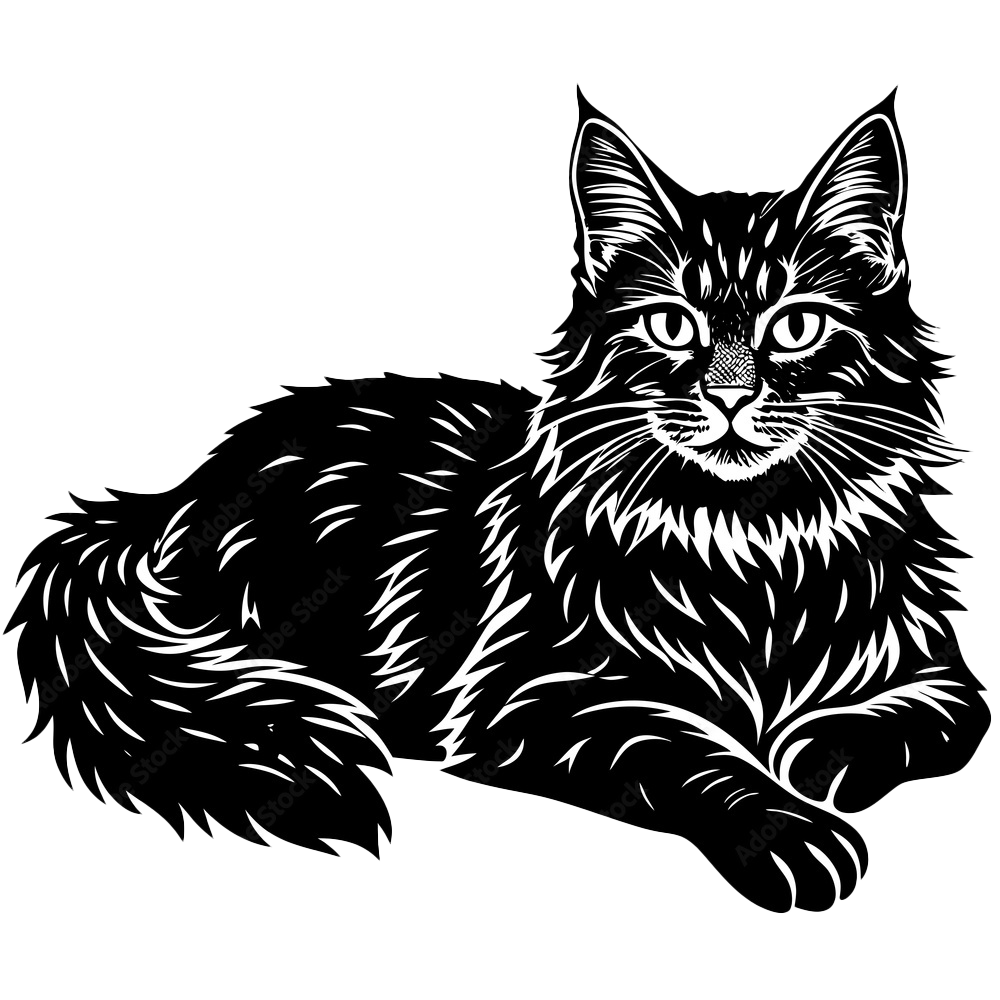Maine Coon Kitten Health
Maine Coon kittens are generally robust, but like all purebred cats, they can be prone to certain genetic and developmental health issues. To ensure your kitten grows into a healthy adult, here’s what you need to know:
1. Common Health Risks in Maine Coon Kittens
A. Genetic Conditions
Hypertrophic Cardiomyopathy (HCM)
The #1 health threat to Maine Coons—a hereditary heart disease causing thickened heart walls.
Prevention: Buy from breeders who DNA test parents for MYBPC3 mutation and perform annual echocardiograms.
Spinal Muscular Atrophy (SMA)
A rare genetic disorder causing muscle weakness (usually non-fatal but affects mobility).
Testing: Reputable breeders screen for SMA.
Hip Dysplasia
Due to their large size, some Maine Coons develop joint issues.
Signs: Limping, reluctance to jump.
B. Developmental Issues
Kitten Fading Syndrome
Weakness, failure to thrive (often due to infections, malnutrition, or congenital defects).
Prevention: Ensure proper vaccinations, deworming, and nutrition.
Patellar Luxation
Kneecap dislocation (more common in fast-growing large breeds).
2. Essential Health Checks for Your Kitten
Before bringing home a Maine Coon kitten, verify:
✅ Health Guarantee: Reputable breeders offer at least a 1-year genetic health warranty.
✅ Vaccination Records: Should have FVRCP (distemper), rabies, and FeLV shots.
✅ De-worming/Flea Treatment: Kittens are prone to parasites.
✅ Vet Exam: A recent vet checkup confirming no heart murmurs or abnormalities.
3. Preventative Care Tips
Diet: Feed high-protein, low-carb food (kibble for dental health + wet food for hydration).
Joint Support: Consider glucosamine supplements as they grow.
Grooming: Brush 2–3x weekly to prevent mats and hairballs.
Exercise: Provide cat trees and interactive toys to prevent obesity.
4. Red Flags in a Kitten
🚩 Breeder refuses health testing (run away!).
🚩 Kitten is lethargic, sneezing, or has watery eyes (sign of upper respiratory infection).
🚩 Underweight or bloated belly (could indicate parasites).
5. Lifelong Health Monitoring
Annual vet visits (bi-annual for seniors).
Heart scans after age 3 (HCM can develop later).
Weight management (obesity strains joints/heart).
